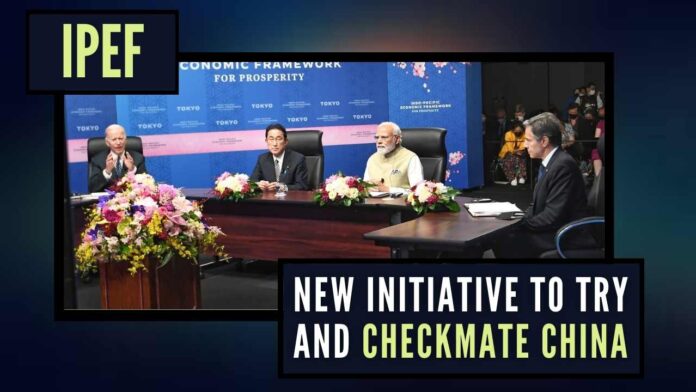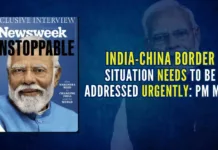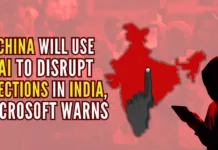
QUAD members along with nine other countries endorses IPEF
QUAD countries – US, India, Japan, and Australia – on Monday formed an alliance – Indo-Pacific Economic Framework for Prosperity (IPEF) – of nine more countries at the Tokyo summit, which was seen as a counter group to checkmate the growing muscle-flexing by China. During the launch of IPEF at the QUAD summit venue, US President Joe Biden, India Prime Minister Narendra Modi, Japan Prime Minister Fumio Kishida, and Australia Prime Minister Anthony Albanese interacted with the head of nine countries virtually. The nine countries that joined the QUAD initiative IPEF are Australia, Brunei, Indonesia, Republic of Korea, Malaysia, New Zealand, Philippines, Singapore, Thailand, and Vietnam.
In the IPEF meeting, Indian Prime Minister Narendra Modi said India is committed to a free, open, and inclusive Indo-Pacific region and called for robust economic ties between the countries to ensure continued growth, peace, and prosperity. Giving this assurance at the launch of the Indo-Pacific Economic Framework for Prosperity (IPEF)in Tokyo, he also said this mechanism is a declaration of a collective desire to make the Indo-Pacific region an engine of global economic growth. He said the foundation of resilient supply chains must be 3Ts – Trust, Transparency, and Timeliness.
These observations came from the backdrop of China adopting an aggressive stance in the region and repeatedly criticizing the QUAD combine. India, the US, Japan, and Australia are part of the QUAD grouping. Ahead of the QUAD summit, Foreign Minister of China Wang Yi on Sunday said the Indo-Pacific strategy of the United States is “bound to fail” as it is vigorously promoted by Washington to “contain” Beijing.
Meanwhile, speaking at the IPEF launch ceremony in the presence of US President Joe Biden and Japanese Prime Minister Fumio Kishida besides leaders of several other countries virtually participating, Modi said India has historically been at the center of trade flows in the Indo-Pacific region, having the world’s oldest commercial port in Lothal, Gujarat.
The IPEF seeks to strengthen economic partnership amongst participating countries with the objective of enhancing resilience, sustainability, inclusiveness, economic growth, fairness, and competitiveness in the Indo-Pacific region.
Earlier, Biden told a news conference in Tokyo that 13 countries would be part of the launch of the IPEF. The IPEF is a “commitment to working with our close friends and partners in the region on challenges that matter most to ensuring economic competitiveness in the 21st Century,” he said. The IPEF will not negotiate tariffs or ease market access. The framework is perceived as a bid by the US to assume a larger role in the economic sphere.
The new framework aims at integrating partner countries via agreed standards in four key areas – digital economy, supply chains, infrastructure projects and clean energy, and tax and anti-corruption measures. The framework will aim at flexibility and inclusion, and partners can pick and choose modules without having to sign on for all four pillars. The leaders of the QUAD are set to demonstrate in Tokyo it is a “force for global good” and has a unifying commitment to a rules-based international order amid China’s increasingly intimidatory behaviour.
The summit is taking place at a time when relations between China and the member countries of the QUAD have become tense in the last few years with Beijing increasingly challenging democratic values and resorting to coercive trade practices.
Biden is likely to use the summit to showcase Washington’s strong commitment to the Indo-Pacific region and may call for further revitalizing the grouping’s framework for cooperation. The rollout of the IPEF is expected to send across a signal that the US is focused on pushing forward a strong economic policy for the region to counter China’s aggressive strategy on trade in the region.
US National Security Advisor Jake Sullivan on Sunday said the IPEF is designed to create “high-standard approaches” to the digital economy, to clean energy transition, diverse and resilient supply chains, and open and transparent economic governance.
PGurus is now on Telegram. Click here to join our channel and stay updated with all the latest news and views
For all the latest updates, download PGurus App.
- Prime Minister Narendra Modi: A Gujju businessman who does not invest his precious time for a losing battle - April 13, 2024
- NIA arrests two accused Shazib and Taahaa in Bengaluru’s Rameshwaram Cafe blast case from Kolkata - April 12, 2024
- National Herald scam: Adjudicating Authority upholds Rs.752 crore assets attached by ED - April 11, 2024











Chiina has to be put in its place.